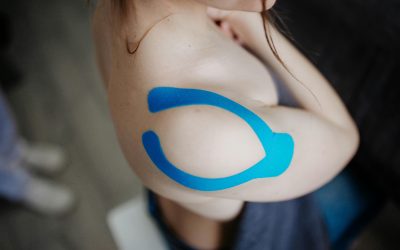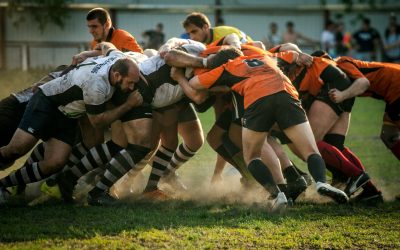Shockwave Therapy
We are delighted to be able to offer Shockwave Therapy.
Shockwave Therapy can be used to treat pain in areas such as the Achilles tendon, but evidence shows it can help other conditions such as Plantar Fasciitis and a range of other joints.
After undergoing Shockwave Therapy, some people report an immediate reduction in pain levels.
Shockwave Therapy is often used in combination with other physiotherapy techniques as part of your recovery programme. The use of Shockwave Therapy as a treatment modality would always be implemented following an Initial Consultation with one of our therapists.
Benefits of Shockwave Therapy:
- Fast and effective pain relief
- Non-surgical and non-invasive
- Stimulates blood flow in areas of poor circulation
- No need for medication
- No risk of infection
So, how does it work?
Shockwave therapy is a non-surgical treatment, and works by delivering impulses of energy, targeted to specific damaged tissues within the abnormal tendon. This increases the blood flow within the affected area, stimulating cell regeneration and healing, and decreasing local factors which can cause pain.
A small amount of gel is applied to the area in which the shockwave therapy will be delivered (much like during an ultrasound scan). A therapy gun is pressed against the affected area and the shockwaves are delivered through the skin. The impulses are delivered through the skin as a shockwave that spreads inside the injured tissue as an aspherical ‘radial’ wave. These radial shockwaves initiate an inflammation-like response in the injured tissue that is being treated and prompts the body to respond naturally by increasing blood circulation, the number of blood vessels and therefore metabolism in the injured tissue.
Shockwave Therapy is delivered as a course of treatment, typically between 3 to 6 sessions depending on the issue and its severity.
After the treatment, you may experience temporary soreness, tenderness or swelling for a few days following the procedure, as the shockwaves stimulate an inflammatory response. But this is the body healing itself naturally.
For more information, please contact a member of our team by emailing us at getmebetter@summitphysio.co.uk or by calling 0800 731 2738
You can also book an appointment online at https://bit.ly/3fluV74
what to expect
further information about visiting us for a Shockwave session, from what we treat to what you should expect and how to prepare can be found below.
How it works?
Shockwave Therapy can be used to treat longstanding pain and discomfort. A handheld device is moved over a conductive gel on the skin to send waves of energy to painful areas of the body. These mechanical pressure pulses (shockwaves) work by reinjuring tendons and tissues which in turn stimulates blood flow helping problem areas to heal.
How to prepare for a session
Aside from a positive attitude, you should bring the following items to one of our physiotherapy sessions:
Suitable Clothing
e.g; Shorts, Strappy top, Sportswear etc.
Glasses
(if you require them to read forms)
Medical History
Please remember to inform us of any prior or ongoing medical problems that you have even if you think they seem unrelated to the pain you are seeking treatment for.
Shockwave Therapy At Summit
Here at Summit we can offer our clients the best possible treatment in line with NICE guidelines for patients suffering with Tendonopathy. People suffering from such problems may find relief in the form of physiotherapy or local steroid injections but for the majority of chronic patients surgery has been the only option for resolution of symptoms.
Now we can offer our clients who are suffering with Shoulder, Elbow, Hip, Knee and Ankle pain a non-invasive treatment called Shockwave Therapy a treatment technique using revolutionary high-tech equipment.
How Does Shockwave Therapy work?
Via the application of a hand held device, the treatment is delivered through a conduction gel applied to the painful site, the Shockwave Therapy is (a series of energetic mechanical shockwaves created by compressed air in the hand piece) passed into the tissues. The mechanical waves stimulate an inflammatory-like reaction in the tissue being treated. The body’s response in turn is to increase the localised blood circulation and metabolism which enhances the body’s healing process.
What Can Be Treated?
There are many conditions that will benefit from Shockwave therapy not limited to;
Frozen Shoulder
Tennis Elbow
Greater Trochanteric Pain Syndrome
Patellar Tendinopathy
Achilles Tendinopathy
Plantar Fasciatis
With documented medical evidence to support the treatments inclusion in the NICE guidelines conditions have reported such improvements as;
77% for Tennis Elbow
90% improvement in Plantar Fascia symptoms
75% for Achilles and Patellar Tendinopathy
91% improvement for Calcific Tendinitis
FAQ’s with Shockwave Therapy
Why Shockwave Therapy?
NICE Guidline approved
Non-Invasive
Rapid Pain relief
Restoration of normal functional activities
>70% success rate
No medications
3-5 sessions
Are there any Side-effects
Although it is a safe procedure some minor pain/discomfort during or after the treatment is administered is to be expected. Less commonly there could be minor skin bruising, reddening or swelling of the effected area.
Contraindications
Pregnancy
Pacemaker
Blood clotting disorder
Received a steroid injection with 6-weeks
Skin infections/abrasions at the treatment site
ready to book an appointment?
It’s never been easier to book a session with us, just click below and choose what type of appointment, which clinic and which physiotherapists you’d like.
CHECK OUT SOME OF OUR LATEST BLOGS
How to Build Resilience with Rehabilitation Exercises: From Injury to Strength
When we build resilience, we improve strength, stability, mobility, and make the injured structure more robust for day to day life, and sporting activities.
Ruby Six Nations: How to avoid common injuries
By following injury prevention strategies and guidelines, rugby players can minimise injury risk and enjoy the sport safely and effectively for years to come.
Golf and the Masters: A Comprehensive Guide to Injury Prevention
From common golf injuries to preventive measures, pre-tournament preparation, the role of equipment, fitness and conditioning, and nutrition strategies. This comprehensive guide aims to equip golfers with the knowledge and tools to safeguard their well-being on the course.
Marathon Training: 5 steps to Marathon success!
Proper preparation is crucial for participating in a marathon, especially for renowned events like the London & Manchester Marathons. Preparing the body and mind for the physical and mental demands of running 26.2 miles helps build endurance, strength, and stamina, reducing the risk of injuries and improving overall performance.
The Art of Taping: Enhancing Stability and Performance with Taping Techniques
Whether you’re an athlete striving for peak performance or an individual recovering from an injury, the use of taping techniques has emerged as a valuable ally in promoting stability, aiding recovery, and enhancing overall performance.
How Balance and Proprioception Training Improve Stability and Control
Balance and proprioception are crucial aspects of human movement and overall physical well-being. They play a vital role in maintaining stability, preventing injuries, and enhancing athletic performance. In this blog, we will explore why balance and proprioception are important and how they contribute to our daily lives.
How to Manage Musculoskeletal Disorders with Physiotherapy
With a growing increase in reasons why people are suffering with musculoskeletal disorders; physiotherapy is a beneficial and popular management option.
Sports Physiotherapy: Injury-Free and Strong
Sports physiotherapy is a specialised field that plays a pivotal role in promoting the well-being of athletes. It encompasses a comprehensive approach to injury prevention, rehabilitation, performance enhancement, and overall health maintenance
From Stiff to Supple – Unlocking the Benefits of Flexibility for Enhanced Fitness
Flexibility is a crucial yet often overlooked component of overall fitness. While many fitness enthusiasts focus on strength training and cardiovascular exercises, neglecting flexibility can hinder one’s ability to move freely and perform optimally. In this article, we’ll explore the importance of stretching exercises in promoting flexibility, their positive impact on power output, and how flexibility contributes to improved performance and longevity in fitness.
Wrightington
Wrightington Hotel
& Country Club,
Wigan,
WN6 9PB
Chorley
David Lloyd Health Club,
Moss Lane,
PR6 8AB
get in touch...
Our network of clinics is based in Lancashire & Greater manchester and is run by our team of dedicated practitioners.
The address details for each clinic are listed below for appointments, for general enquiries or anything you'd like to know prior to booking, please use the contact form or email us and we'll be in touch ASAP!
Alternatively, we can be reached on
SUMMIT MANCHESTER
Urban Reform, 106 Temperance Street, Piccadilly, Manchester, M12 6HR
SUMMIT WRIGHTINGTON
Wrightington Hotel & Country Club, Wigan, WN6 9PB
SUMMIT CHORLEY
David Lloyd Health Club, Moss Lane, PR6 8AB








